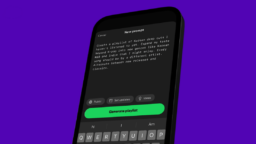Many of the copyright lawsuits filed against AI companies in the US hinge on the question of whether or not using copyrighted material without permission to train AI should be given a “fair use” exemption.
AI companies say yes, copyright owners say no.
Now, in what appears to be a first in the US legal system, a federal judge in California has ruled on the issue – and his decision represents a mixed bag for both rightsholders and AI companies.
In a case brought by book authors against Anthropic (which is also being sued by music publishers), Judge William Alsup of the US District Court for the Northern District of California ruled that Anthropic’s use of copyrighted books to train AI, without explicit permission to do so, does indeed count as “fair use.”
That’s the bad news for rightsholders.
The less bad news?
The judge’s rationale for why Anthropic’s use of books counts as fair use might not carry much weight in the cases brought against music publishers against AI companies.
Part of the test that US courts apply when determining “fair use” involves whether or not the use of the works is “transformative” – that is, whether the output is significantly different from the copyrighted material that was used.
Judge Alsup called Anthropic’s use of the books in this case “spectacularly” transformative – i.e. the resultant media created by/on Anthropic’s chatbot, Claude, wasn’t particularly reminiscent of the copyrighted source material.
That’s not the case with the allegations made against Anthropic by music publishers Universal Music Group, Concord, and ABKCO.
In their lawsuit, these music companies focus on so-called ‘outputs’ of Claude. They state that Anthropic’s chatbot is able to “generate identical or nearly identical copies of [our] lyrics, in clear violation of publishers’ copyrights.”
Given the right prompt, argue the music publishers, Claude can also produce “original” song lyrics that clearly rip off existing copyrighted songs.
It’s a similar case with the closely-watched lawsuits against AI music-making platforms Suno and Udio.
There, record labels owned by the three majors – Universal Music Group, Sony Music Entertainment, and Warner Music Group – allege that the platforms’ AI engines generate songs (i.e. ‘outputs’) that are “soundalikes” to existing copyrighted recordings.
It’s also worth pointing out that Anthropic might not walk away completely unscathed from its legal battle against the book authors.
Judge Alsup ruled that Anthropic’s practice of copying and storing books from pirate online libraries is not fair use, and the AI company will have to stand trial over that matter in December.
It faces damages of up to $150,000 per infringement.
“Anthropic had no entitlement to use pirated copies for its central library. Creating a permanent, general-purpose library was not itself a fair use excusing Anthropic’s piracy.”
Judge William Alsup
Anthropic spent millions of dollars buying hard copies of books, many of them in used condition, to train its AI. It then digitized those books and then had the hard copies torn up.
That practice was fair game, the judge concluded, because it didn’t create any new copies of the purchased books.
However, Anthropic also downloaded books from online libraries known to provide access to pirated copies of books – some 7 million of them.
“Anthropic had no entitlement to use pirated copies for its central library. Creating a permanent, general-purpose library was not itself a fair use excusing Anthropic’s piracy,” the judge wrote in the ruling, which can be read in full here.
Notably, the book authors who sued Anthropic – Andrea Bartz, Charles Graeber, and Kirk Wallace Johnson – never alleged that Claude ripped off their books – just that Anthropic used their books to train Claude, without their explicit permission.
“Authors do not allege that any infringing copy of their works was or would ever be provided to users by the Claude service,” Judge Alsup noted.
“Yes, Claude could help less capable writers create works as well-written as authors’ and competing in the same categories. But Claude created no exact copy, nor any substantial knock-off. Nothing traceable to authors’ works.”
The judge rejected some key arguments that music rightsholders have made in arguing that AI companies need to license the material they use – for example, the argument that it’s fundamentally unfair for tech companies to use copyrighted works so that they can create AI tools that compete with human creators.
“Authors’ complaint is no different than it would be if they complained that training schoolchildren to write well would result in an explosion of competing works.”
Judge William Alsup
“Authors cannot rightly exclude anyone from using their works for training or learning as such. Everyone reads texts, too, then writes new texts,’ Judge Alsup wrote.
“To make anyone pay specifically for the use of a book each time they read it, each time they recall it from memory, each time they later draw upon it when writing new things in new ways would be unthinkable.”
The judge added: “Authors’ complaint is no different than it would be if they complained that training schoolchildren to write well would result in an explosion of competing works.”
The Copyright Act, he noted, “seeks to advance original works of authorship, not to protect authors against competition.”
So what can we expect the impact to be from this ruling?
Legal experts cited by Law360 say that, given Anthropic is facing legal damages from its use of pirated books, other AI developers may be spurred to sign licensing deals with rightsholders instead of risking hefty payouts.
That seems to have been the case even before this ruling. Earlier this month, Bloomberg reported that Suno and Udio have entered into licensing talks with the record companies suing them.Music Business Worldwide





